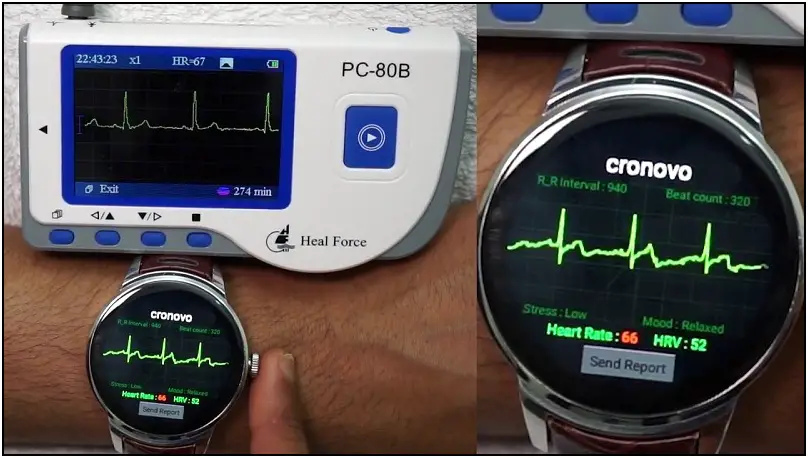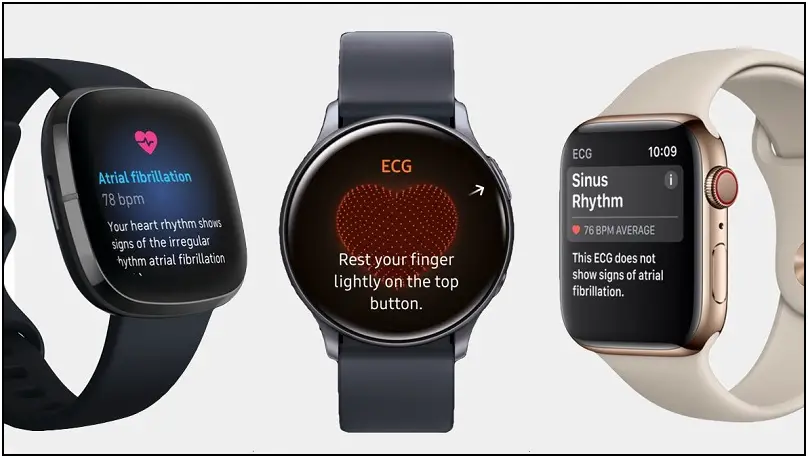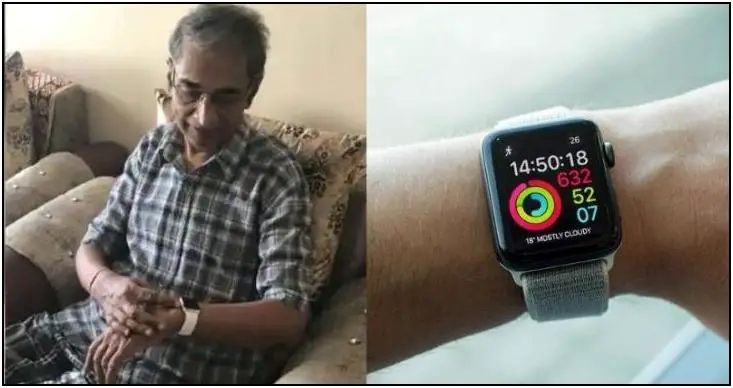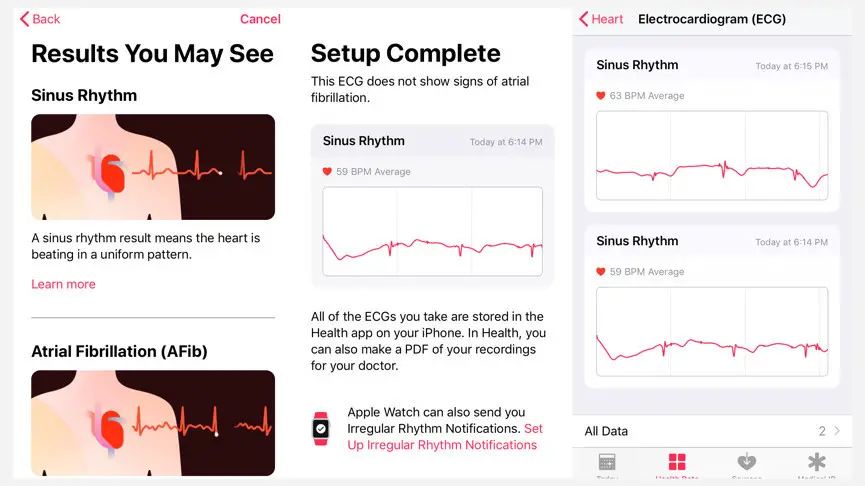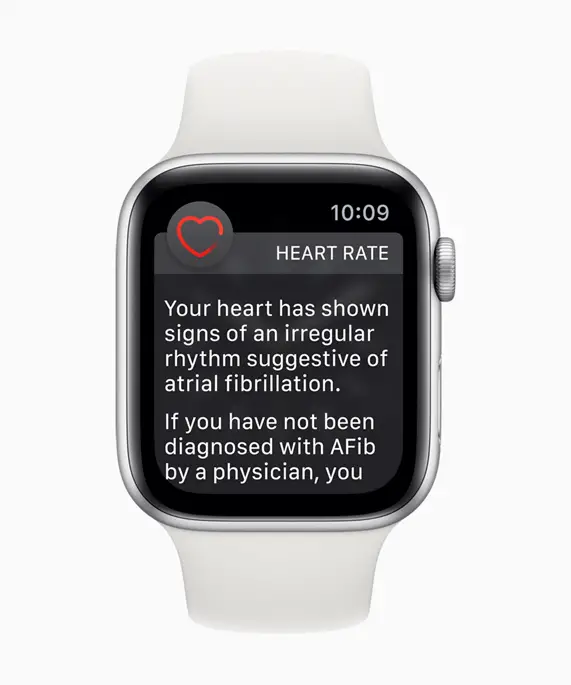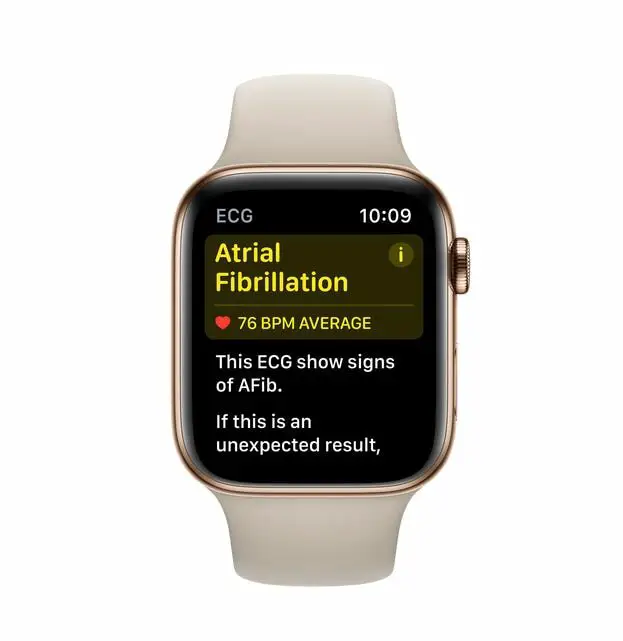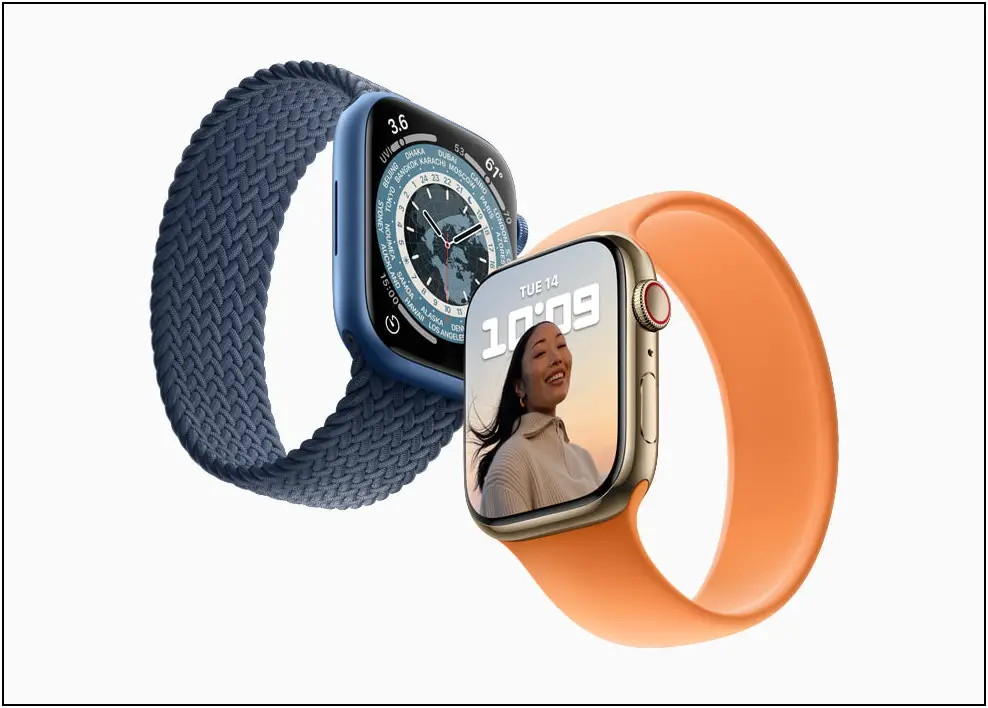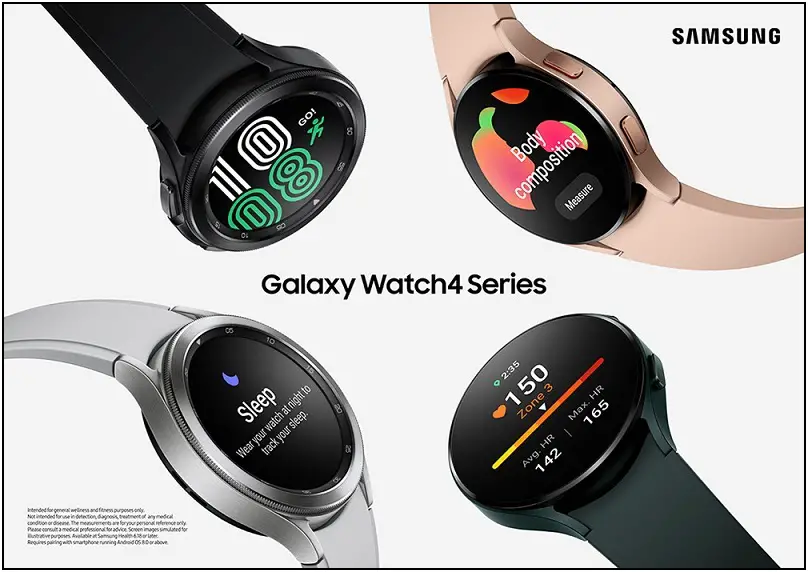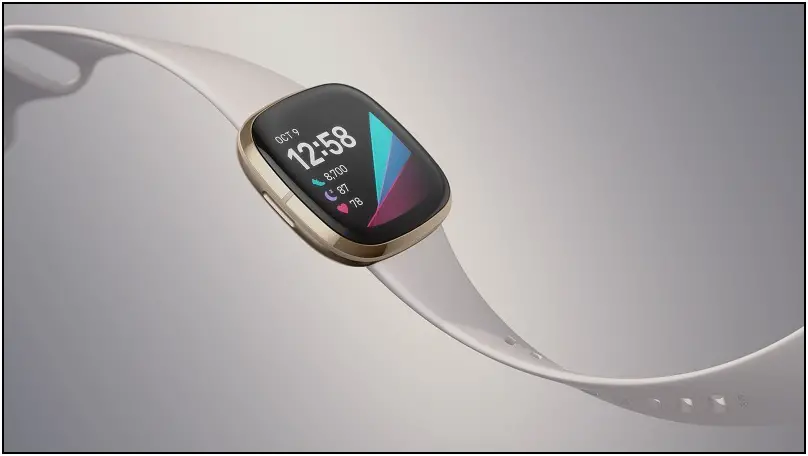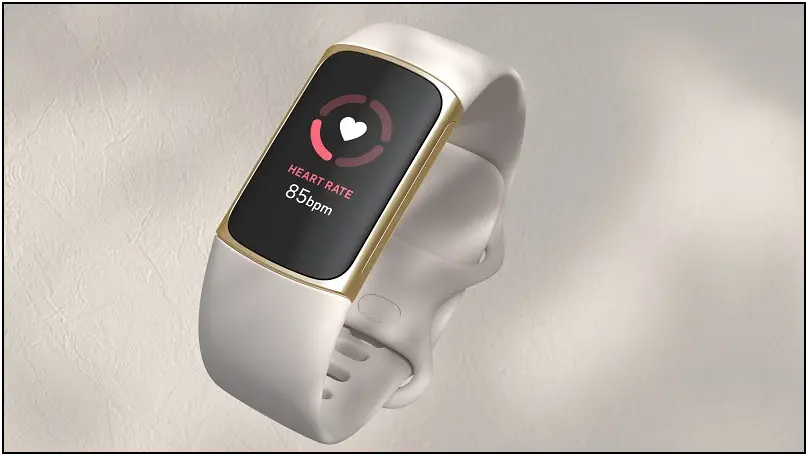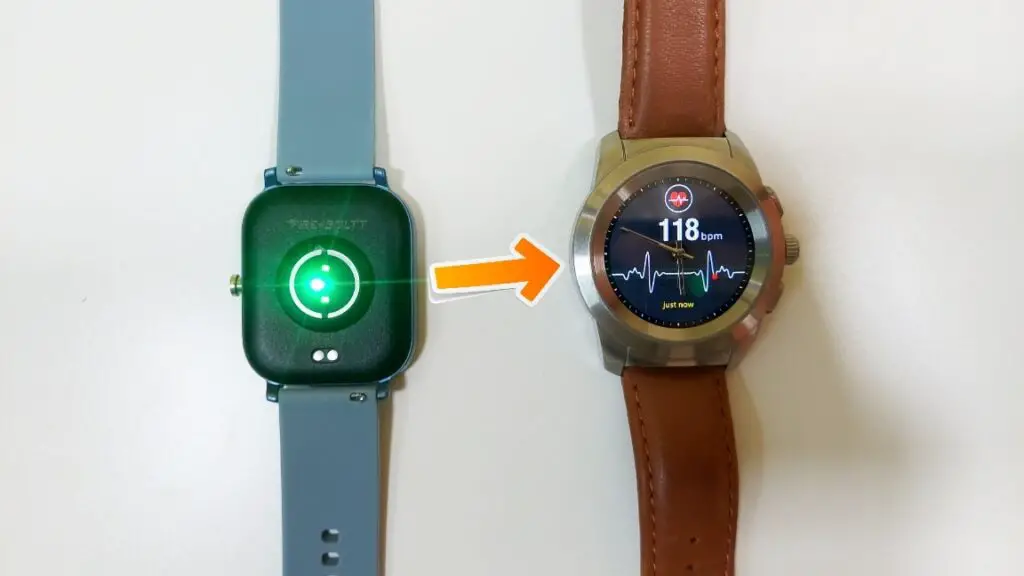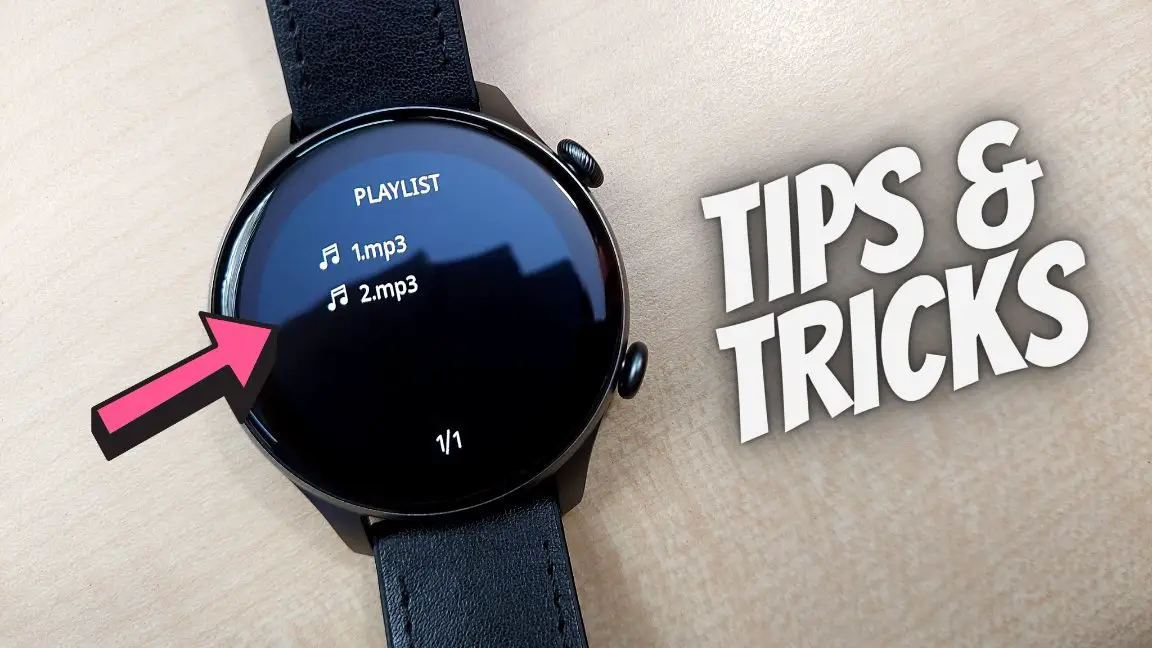Smartwatches have had heart rate sensors for quite some time now. But ECG is something new that you’ll find on premium smartwatches and fitness trackers. Compared to an optical heart rate monitor, an electrocardiogram (ECG or EKG) is more accurate and can even detect heart problems like atrial fibrillation. In this article, let’s see how ECG works on a smartwatch, what it is, and whether you should rely on it.
Related | How Does a Smartwatch Measure Your Heart Rate? Check Accuracy
What is ECG or EKG?
For starters, an electrocardiogram (ECG or EKG) helps detect the heart’s rhythm and electrical activity. The ECG sensor records the time and strength of the electrical signal that makes the heartbeat.
The ECG app then monitors these signals to receive your heart rate and check whether upper and lower heart chambers are in rhythm or not. If they’re not in rhythm, it could be a sign of Arrhythmias (irregular heart rhythm).
Arrhythmias is a condition in which a person’s heartbeat is irregular or not in rhythm. The most common type of Arrhythmias is Atrial fibrillation (AFib) that starts in the atria and can cause blood clots, heart stroke, or even complete heart failure.
Irregular heart rhythms can happen even in healthy hearts due to consumption of alcohol, caffeine, or diet pills. Plus, some medications, too, can cause Arrhythmias. In case of recurring arrhythmias alongside underlying heart disease, one should seek medical attention.
ECG monitoring gives accurate information about heart rate and its functioning in the body. This helps you know when to consult a doctor. Notably, ECG does not measure blood flow— instead, it monitors how well your heart is working.
How ECG Works on a Smartwatch?
Most smartwatches that come with ECG are designed especially to detect the heart rate and AFib (or Atrial fibrillation). Being one of the most common irregular heartbeat rhythm conditions, it can be easily detected on smartwatches.
In the case of the Apple Watch, it replicates a single-lead ECG with a titanium electrode in the watch’s digital crown and a layer of chromium silicon carbon nitride on the back of the watch.
When you put your finger on the electrode, it forms a closed circuit between the finger, heart, and wrist. This helps the watch record the electrical impulses that make your heart beat. ECG app uses this data to check for Atrial fibrillation and prompts if there are any abnormalities.
The ECG works in a similar fashion on all other smartwatches. For example, on Samsung Galaxy Watch 4, you need to rest your finger on the top button while the watch’s on your wrist, give it half a minute, and you’re good to go.
How Useful is the Smartwatch ECG? Should You Rely On it?
ECG on smart wearables is fairly accurate and can be the first point of reference for something being wrong with your health. While not all brands claim accuracy of ECG sensor on their watch, a few like Apple showcase their prowess through accuracy tests.
As per a clinical trial using a 12-lead electrocardiogram (considered to be the gold standard), Apple Watch’s ECG app has 99.3% sensitivity to detect the sinus rhythm and 98.5% sensitivity for classifying the AFib. This makes it quite reliable for everyday use.
However, note that Apple, Samsung, or Fitbit watches use single-lead ECG. Whereas, hospitals use medical-grade 12-lead ECG. 1-lead ECG is only viable for basic heart monitoring including detection of atrial fibrillation.
In comparison, the 12-Lead ECG uses 10 different electrodes placed over different positions on the body to record the 3-dimensional electrical activity of the heart. This helps figure out the complete health of the heart, including far more diseases and disorders.
Hence, you cannot simply replace medical-grade ECG with the one on your watch. If you have any heart-related issues, it’s always better to consult medical help. The ECG on a watch is good, but only for basic anomalies like Afib.
How ECG on Smartwatches Can Save Your Life?
The ECG sensor detects the heartbeat rhythm regularly to keep a check on the health of your heart. It notifies you when it detects something abnormal in your body due to irregular heartbeat patterns.
Besides, it can detect Arrhythmias like Atrial fibrillation and can also warn you about heart attack using stokes and movements around the heart. And hence, it can be a life savior in certain situations by prompting you for early medical attention.
As per JAMA Cardiology in 2020, Smartwatches using ECGs show 93-95% accurate data while correctly identifying and distinguishing between different types of heart attacks. The accuracy of the watch for correctly noting the heart attack among healthy people is 90%.
There have been several instances wherein the Apple Watch saved people’s life by early detection of abnormalities with their hearts. You can read a similar case here wherein the ECG on Apple Watch saved an old man’s life.
False Readings with ECG on Smartwatches
While ECG on smartwatches can save lives, it can also cause panic and nervousness with false alerts. Smart wearables can give both false positives and false negatives about atrial fibrillation due to data overload.
There are several reports raising skepticism around the accuracy of smartwatch-measured ECG. According to a study with about 420,000 Apple Watch wearers, only about one-third of those who got an irregular pulse notification were diagnosed with atrial fibrillation upon subsequent testing with a device called ECG patch two weeks later.
Another study concluded that single-lead ECG measured using an Apple Watch paired with KardiaBand had only “moderate diagnostic accuracy” in diagnosing atrial fibrillation as opposed to a 12-lead ECG in the hospital.
While false positive readings can cause nervousness, false negatives can be harmful to you if you don’t consult a doctor on time. This is why medical verification is necessary before taking any action solely based on readings from the wearable.
Popular Smartwatches with ECG (FDA Approved)
There are several smartwatches available in the market with ECG sensor. Here are some popular ones you can buy:
Apple Watch Series 7
The Apple Watch Series 7 is the latest addition to the Apple Watch series. This smartwatch features an ECG sensor and has the most accurate health tracking in any Apple Watch yet.
Check here: Apple Watch Series 7 GPS
Samsung Galaxy Watch 4
The Samsung Galaxy Watch 4 comes with Samsung’s new BioActive sensor and the global version also supports ECG. This helps in tracking the body composition data in real-time.
Check here: Samsung Galaxy Watch 4 Bluetooth
Fitbit Sense
Fitbit Sense is a health-conscious smartwatch with many health-related features. This watch comes with an ECG sensor and also a dedicated EDA sensor to track stress levels. Moreover, it has a body temperature sensor too.
Check here: Fitbit Sense Advanced Health Smartwatch
Fitbit Charge 5
The Fitbit Charge 5 is an advanced fitness tracker with an ECG sensor, an EDA sensor, and Body Temperature sensor. It can detect real-time heart rate, breathing rate, cardio fitness level, and more.
Check here: Fitbit Charge 5
Wrapping Up
This was all about what is ECG on a smartwatch or fitness tracker and how it works. We’ve also mentioned how a smartwatch ECG can save lives. Anyways, do you have a smartwatch with ECG? Do you actively use it for tracking your heart health? Do let us know.

